Home>diy>Building & Construction>What Is A Consultant In Construction

Building & Construction
What Is A Consultant In Construction
Modified: January 23, 2024
Discover the role of a consultant in building construction projects. Gain insights into the responsibilities and expertise required for successful project management.
(Many of the links in this article redirect to a specific reviewed product. Your purchase of these products through affiliate links helps to generate commission for Storables.com, at no extra cost. Learn more)
Introduction
Welcome to the world of construction consulting, where industry expertise meets strategic guidance. Construction projects can be complex and challenging, requiring careful planning, execution, and management. That’s where construction consultants come in. These professionals provide their expertise and guidance to help clients navigate the intricacies of the construction process and ensure successful project outcomes.
In this article, we will explore the role and responsibilities of a construction consultant, the skills and qualifications needed to excel in this field, and the benefits and challenges that construction consultants face. Whether you are considering a career in construction consulting or are a client seeking to understand the value that consultants bring, this article will provide valuable insights.
So, let’s dive deeper into the world of construction consulting and discover what it takes to be a successful construction consultant.
Key Takeaways:
- Construction consultants provide expertise in project planning, design, cost estimation, risk assessment, and quality control. Their role is crucial in ensuring successful construction outcomes by guiding clients through complex projects.
- The future of construction consulting is driven by technology, sustainability, data analytics, and global expansion. Consultants must adapt to these trends and continue professional development to thrive in the dynamic industry.
Read more: What Is Construction Consulting
Definition of a Consultant in Construction
A consultant in construction is a professional who provides expert advice and guidance to clients in the construction industry. These consultants possess specialized knowledge and experience in various aspects of construction, ranging from project management to design and regulatory compliance.
The primary goal of a construction consultant is to assist clients in achieving their construction objectives efficiently and effectively. They work closely with clients, contractors, architects, and other stakeholders to analyze project requirements, identify potential challenges, and develop strategic solutions.
Construction consultants have a deep understanding of the construction industry, including the latest trends, technologies, and regulations. They stay updated on industry best practices and have a keen eye for identifying opportunities for improvement and optimization in construction projects.
These professionals can provide their expertise at different stages of the construction process, from initial planning and design to project execution and post-construction evaluation. They may be hired on a project basis or employed by consulting firms that offer a wide range of construction consulting services.
Overall, a construction consultant acts as a trusted advisor, helping clients make informed decisions, mitigate risks, and achieve their construction goals with maximum efficiency and cost-effectiveness.
Roles and Responsibilities of a Construction Consultant
A construction consultant takes on a range of roles and responsibilities to ensure the successful completion of construction projects. Let’s explore some of the key roles they play:
- Project Planning and Management: Construction consultants assist clients in the initial planning phase of construction projects. They assess project feasibility, develop project schedules, and create realistic budgets. Throughout the project, they oversee all aspects of construction management, including coordinating with contractors, monitoring progress, and resolving any issues that may arise.
- Design and Development: Consultants provide valuable insights during the design and development phase of construction. They work with architects and engineers to ensure the design aligns with the client’s vision and meets regulatory standards. They also offer recommendations on materials, technologies, and construction methods to optimize project outcomes.
- Cost Estimation and Budgeting: Construction consultants play a critical role in estimating project costs and creating budgets. They consider factors such as labor, materials, permits, and potential risks to provide accurate cost projections. Throughout the project, they track expenses, analyze cost deviations, and recommend cost-saving measures.
- Risk Assessment and Mitigation: Consultants identify potential risks and challenges that may arise during construction and develop strategies to mitigate them. They conduct thorough risk assessments, provide recommendations for risk prevention, and create contingency plans to minimize project disruptions.
- Regulatory Compliance: Construction projects are subject to numerous regulations and building codes. Consultants ensure that projects adhere to these requirements and obtain the necessary permits and approvals. They stay updated on the latest regulatory changes and guide clients in navigating compliance issues.
- Quality Assurance and Control: Construction consultants are responsible for ensuring the quality of work throughout the project. They establish quality assurance processes, conduct inspections, and monitor construction activities to identify and rectify any deviations from standards. This helps in delivering a high-quality final product.
These are just a few examples of the roles and responsibilities that construction consultants undertake. Their versatility and adaptability allow them to contribute to every aspect of the construction process, providing valuable guidance and expertise to clients.
Skills and Qualifications Required for Construction Consulting
Being a successful construction consultant requires a unique combination of technical skills, industry knowledge, and interpersonal abilities. Let’s explore some of the key skills and qualifications necessary for a career in construction consulting:
- Construction Expertise: A strong foundation in construction is essential for consultants. They should have a deep understanding of construction processes, materials, and techniques. This knowledge allows them to provide informed advice, identify potential issues, and propose innovative solutions.
- Project Management: Construction consultants need excellent project management skills to effectively oversee and coordinate construction projects. They should be proficient in planning, scheduling, budgeting, and resource allocation. Additionally, they must be able to manage multiple projects simultaneously, ensuring they are completed on time and within budget.
- Communication and Interpersonal Skills: Consultants work closely with clients, contractors, architects, and other stakeholders. Strong communication and interpersonal skills are critical in establishing rapport, facilitating effective collaboration, and managing conflicts. They should be skilled in both written and verbal communication, as well as active listening.
- Problem-Solving Abilities: Construction projects often present complex challenges. Consultants must be adept at problem-solving and critical thinking. They should be able to analyze situations, identify issues, and develop creative and practical solutions. This requires a combination of technical knowledge, analytical skills, and the ability to think on their feet.
- Negotiation and Conflict Resolution: Construction consultants frequently encounter conflicts and disagreements. They must possess strong negotiation and conflict resolution skills to handle these situations effectively. This involves finding common ground, mediating discussions, and reaching mutually beneficial solutions.
- Regulatory Knowledge: Construction projects are subject to various regulations and codes. Consultants must have comprehensive knowledge of these regulations and stay updated on any changes. They should understand the compliance requirements and help clients navigate the complexities of obtaining permits and approvals.
- Continuous Learning: The construction industry is constantly evolving, with new technologies, materials, and practices emerging. A successful consultant should have a passion for continuous learning and stay updated on industry trends and advancements. This allows them to provide clients with the latest insights and recommendations.
While formal education in construction management or a related field is beneficial, practical experience in the industry is highly valued. Many construction consultants start their careers by working in construction firms, gaining hands-on experience before transitioning into consulting roles.
By possessing a combination of the skills and qualifications mentioned above, individuals can thrive in the dynamic field of construction consulting and contribute to the success of construction projects.
Benefits of Hiring a Construction Consultant
Hiring a construction consultant can offer numerous benefits to clients involved in construction projects. Let’s explore some of the key advantages:
- Expertise and Knowledge: Construction consultants bring specialized expertise and knowledge to the table. With their in-depth understanding of the industry, they can provide valuable insights and guidance throughout the project. Their expertise helps clients make informed decisions, avoid costly mistakes, and optimize project outcomes.
- Project Efficiency: Construction consultants have proven experience in project management and process optimization. They can streamline project workflows, identify bottlenecks, and propose efficient solutions. By improving project efficiency, consultants help projects stay on schedule and within budget.
- Risk Mitigation: Construction projects are susceptible to various risks and challenges. Consultants conduct thorough risk assessments and develop mitigation strategies to minimize potential disruptions. Their expertise in risk management helps clients navigate unexpected circumstances and protect their investments.
- Cost Optimization: Construction consultants play a vital role in cost estimation, budgeting, and cost control. By accurately forecasting project costs and recommending cost-saving measures, they help clients optimize their construction budgets. This leads to better financial planning and ensures that projects are completed within the allotted budget.
- Regulatory Compliance: Construction projects must adhere to numerous regulations and building codes. Consultants stay updated on the latest regulations and ensure that projects comply with all necessary requirements. This saves clients from potential legal issues and delays in project approvals.
- Conflict Resolution: Construction projects often involve multiple stakeholders with different interests and perspectives. Consultants are skilled in navigating conflicts and facilitating effective communication among all parties. They can mediate discussions, find common ground, and resolve conflicts in a timely manner, fostering a more collaborative working environment.
- Quality Assurance: Construction consultants prioritize quality throughout the project. They establish quality assurance processes, conduct inspections, and ensure that construction activities meet industry standards. Their focus on quality results in the delivery of a high-quality final product, enhancing client satisfaction.
Overall, hiring a construction consultant provides clients with a valuable resource who can guide them through the complexities of construction projects. Whether it is optimizing project efficiency, managing risks, or ensuring regulatory compliance, consultants contribute to the success and smooth operation of construction endeavors.
A construction consultant provides expert advice on various aspects of a construction project, including design, planning, budgeting, and project management. They can help ensure the project runs smoothly and efficiently.
Read more: What Does A Construction Consultant Do
Challenges Faced by Construction Consultants
While being a construction consultant can be rewarding, it also comes with its fair share of challenges. Let’s explore some of the common challenges faced by construction consultants:
- Complexity of Projects: Many construction projects are complex, with multiple stakeholders, tight schedules, and intricate technical requirements. Consultants must navigate these complexities and manage various project aspects simultaneously.
- Changing Client Expectations: Client expectations can change throughout the course of a project, leading to additional scope creep or conflicting priorities. Consultants must be adaptable and flexible to meet evolving client needs while still ensuring project success.
- Project Delays and Disruptions: Construction projects often experience delays and disruptions due to unforeseen circumstances, such as adverse weather conditions or unexpected site conditions. Consultants must be prepared to handle these challenges and find solutions to keep the project on track.
- Communication and Coordination: With multiple stakeholders involved in construction projects, effective communication and coordination can be a challenge. Consultants must facilitate clear and proactive communication among all parties to ensure everyone is aligned and working towards the same goals.
- Budgetary Constraints: Clients often have budget constraints, requiring consultants to find cost-effective solutions without compromising the quality and integrity of the project. Balancing budgetary limitations with project requirements can be a delicate task.
- Adapting to Technological Advances: The construction industry is continuously evolving, with new technologies and tools emerging. Consultants must stay updated on these advancements and adapt their approaches to incorporate the latest construction methodologies and digital tools.
- Managing Expectations: Clients may have high expectations for their construction projects, including timelines, cost savings, and quality standards. Consultants must manage these expectations by ensuring clear communication and setting realistic goals and deliverables.
- Work-Life Balance: The demanding nature of construction consulting can often lead to long working hours and high levels of stress. Consultants must find ways to maintain a healthy work-life balance and manage their own well-being amidst project pressures.
Despite these challenges, construction consultants are equipped with the skills and experience to overcome obstacles and deliver successful outcomes for their clients. Through their expertise and adaptability, they play a crucial role in the construction industry.
How to Become a Construction Consultant
Becoming a construction consultant requires a combination of education, experience, and specific skills. Here is a step-by-step guide on how to pursue a career in construction consulting:
- Educational Foundation: Start by obtaining a bachelor’s degree in construction management, civil engineering, architecture, or a related field. This provides a solid educational foundation and a deep understanding of construction principles, project management, and industry practices.
- Gain Practical Experience: Seek internships, co-op opportunities, or entry-level positions in construction firms to gain practical experience. This hands-on experience will expose you to real-world construction projects and help you develop valuable skills and industry knowledge.
- Acquire Specialized Knowledge: Take advantage of continuing education programs, workshops, and certifications to acquire specialized knowledge in areas such as project management, risk assessment, design, and regulatory compliance. These credentials add credibility to your profile and demonstrate your commitment to professional growth.
- Networking: Networking is crucial in the construction industry. Attend industry events, join professional organizations, and engage with other professionals in the field. Building relationships and connections can lead to job opportunities and mentorship opportunities that can accelerate your career development.
- Develop Strong Communication Skills: Enhance your communication and interpersonal skills. Construction consulting involves interacting with clients, contractors, and other stakeholders on a regular basis. Effective communication is key in understanding client needs, building trust, and collaborating effectively.
- Obtain Professional Certification: Consider obtaining professional certifications to enhance your credentials. Certifications such as the Certified Construction Manager (CCM), Project Management Professional (PMP), or Leadership in Energy and Environmental Design (LEED) can demonstrate your expertise and commitment to excellence.
- Build a Portfolio: As you gain experience, build a portfolio that showcases your successful projects and highlights your contributions. This portfolio will serve as evidence of your expertise and can be shared with potential clients or employers.
- Establish Your Consultancy: Once you have acquired sufficient experience and developed a strong network, consider establishing your own construction consultancy. This allows you to work independently, choose your projects and clients, and have greater control over your career.
- Continuing Education: Stay updated on industry trends, best practices, and technological advancements. Attend conferences, webinars, and workshops to stay informed and maintain your competitive edge in the ever-evolving construction industry.
Remember, becoming a construction consultant is a journey that requires continuous learning, experience, and a commitment to excellence. By following these steps and continually refining your skills, you can embark on a rewarding career as a construction consultant.
Trends and Future Outlook for Construction Consulting
The field of construction consulting is constantly evolving, driven by technological advancements, changing client demands, and industry trends. Let’s take a look at some key trends and the future outlook for construction consulting:
- Adoption of Technology: Technology is transforming the construction industry, and construction consultants need to stay up to date with the latest tools and software. Building Information Modeling (BIM), drones, augmented reality, and cloud-based project management platforms are just a few examples of technologies reshaping the construction landscape. Embracing and utilizing these technologies will enhance productivity, improve collaboration, and streamline project delivery.
- Sustainability and Green Building: As sustainability and environmental consciousness become more prominent, construction consultants will play a critical role in advising clients on sustainable practices and green building certifications. Consultants will be expected to provide expertise in energy efficiency, waste reduction, and the integration of renewable energy sources into construction projects.
- Prefabrication and Modular Construction: Prefabrication and modular construction methods are gaining popularity due to increased efficiency, reduced construction time, and cost savings. Construction consultants will need to familiarize themselves with these methods and advise clients on the benefits and challenges associated with them.
- Data Analytics and Predictive Modeling: With the abundance of data generated during construction projects, construction consultants can harness the power of data analytics and predictive modeling. By analyzing project data, they can identify trends, optimize workflows, and make data-driven decisions, resulting in improved project outcomes and cost savings.
- Risk Management and Resilience: As the construction industry faces various risks, including natural disasters and global pandemics, construction consultants will play a crucial role in helping clients manage and mitigate these risks. They will need to develop strategies for building resilience into construction projects, ensuring they can withstand unexpected disruptions.
- International Expansion: With globalization, construction consultants can expect increasing opportunities for international projects. Consultants must understand cultural differences, local regulations, and construction practices in different regions to provide effective consulting services on a global scale.
- Integrated Project Delivery: The concept of integrated project delivery, where all stakeholders collaborate from the early stages of a project, is gaining traction. Construction consultants will need to foster a collaborative environment and facilitate effective communication among clients, contractors, and other project participants.
- Continued Professional Development: As the construction industry evolves, construction consultants must commit to ongoing professional development. Continuing education, attending industry conferences, and staying informed about emerging trends and best practices are essential to stay ahead of the curve.
The future of construction consulting is bright and promising, driven by advancements in technology, sustainability initiatives, and the need for efficient project delivery. By embracing these trends and continuously adapting to the changing industry landscape, construction consultants can thrive and make significant contributions to the construction industry.
Conclusion
Construction consulting is a dynamic and challenging field that requires a unique blend of expertise, skills, and adaptability. Construction consultants provide valuable guidance and support to clients in navigating the complexities of construction projects, ensuring successful outcomes. Throughout this article, we have explored the definition of a construction consultant, their roles and responsibilities, required skills and qualifications, benefits, challenges, and future trends in the industry.
From project planning and management to risk assessment and regulatory compliance, construction consultants play an integral role in the success of construction projects. Their expertise helps clients make informed decisions, optimize project efficiency, mitigate risks, and adhere to industry standards and guidelines.
However, the role of a construction consultant is not without its challenges. From managing complex projects and evolving client expectations to addressing budgetary constraints and fostering effective communication, consultants must overcome various obstacles to deliver the best results for their clients.
Looking ahead, the future of construction consulting is bright, with advancements in technology, a focus on sustainability, and the integration of data analytics shaping the industry. Consultants must stay updated with these trends, continually enhance their skills, and adapt to the changing needs of clients and the construction landscape.
In conclusion, construction consulting is a rewarding and fulfilling career that offers opportunities for growth and making a significant impact in the construction industry. Whether you are considering a career in construction consulting or seeking the services of a consultant for your construction project, understanding the roles, responsibilities, and value that consultants bring is crucial. By partnering with a skilled and experienced construction consultant, clients can navigate the complexities of their projects and achieve their construction goals with confidence and success.
Frequently Asked Questions about What Is A Consultant In Construction
Was this page helpful?
At Storables.com, we guarantee accurate and reliable information. Our content, validated by Expert Board Contributors, is crafted following stringent Editorial Policies. We're committed to providing you with well-researched, expert-backed insights for all your informational needs.








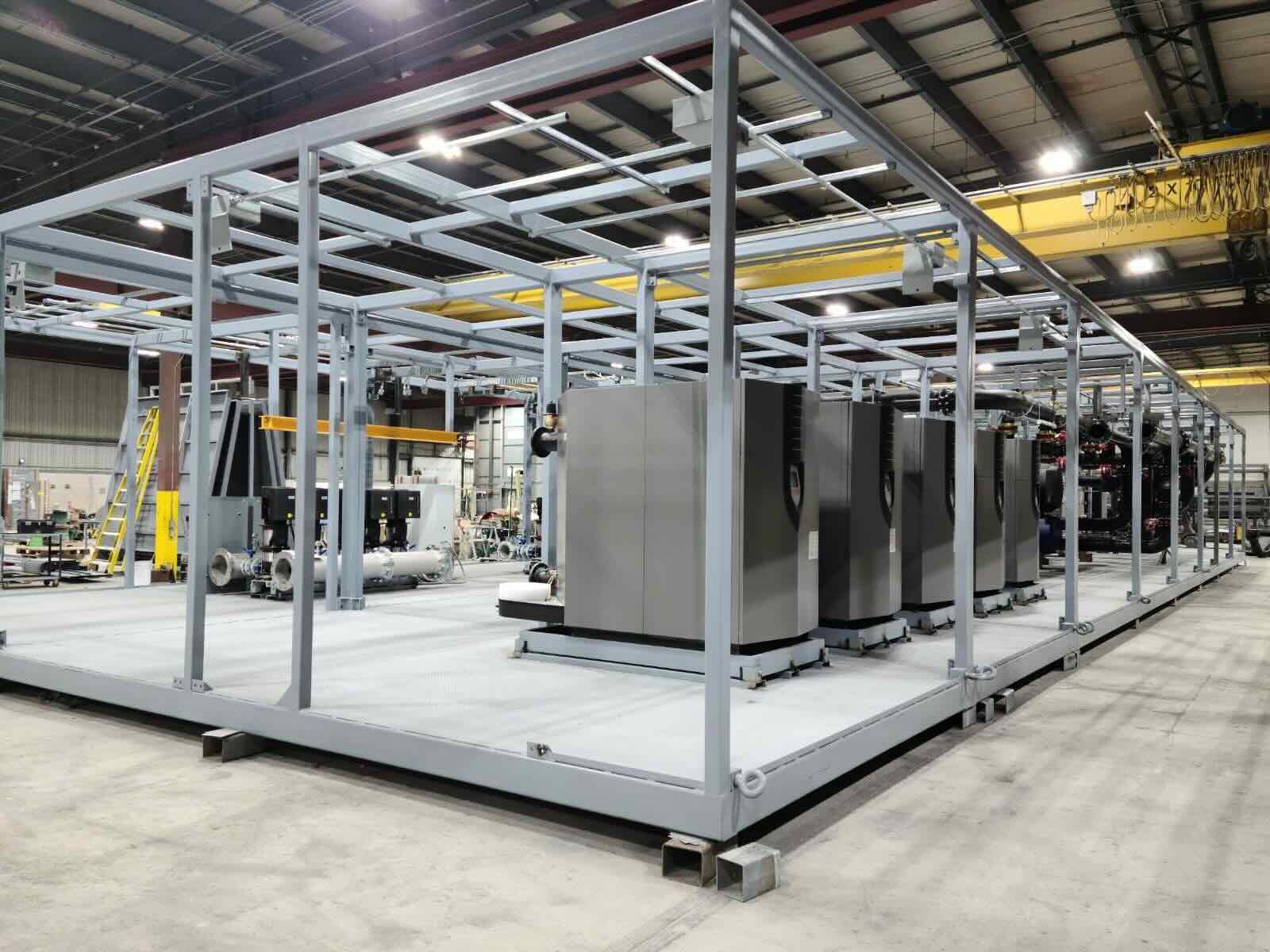
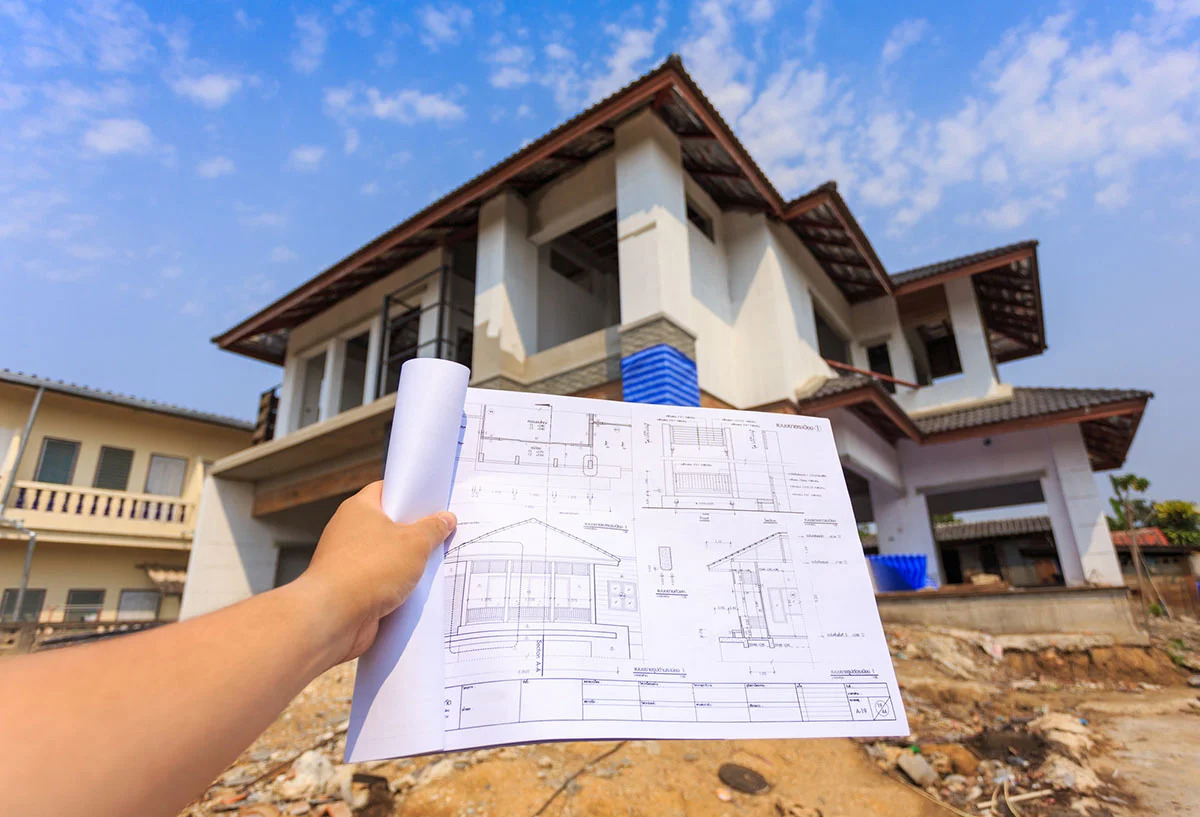

0 thoughts on “What Is A Consultant In Construction”